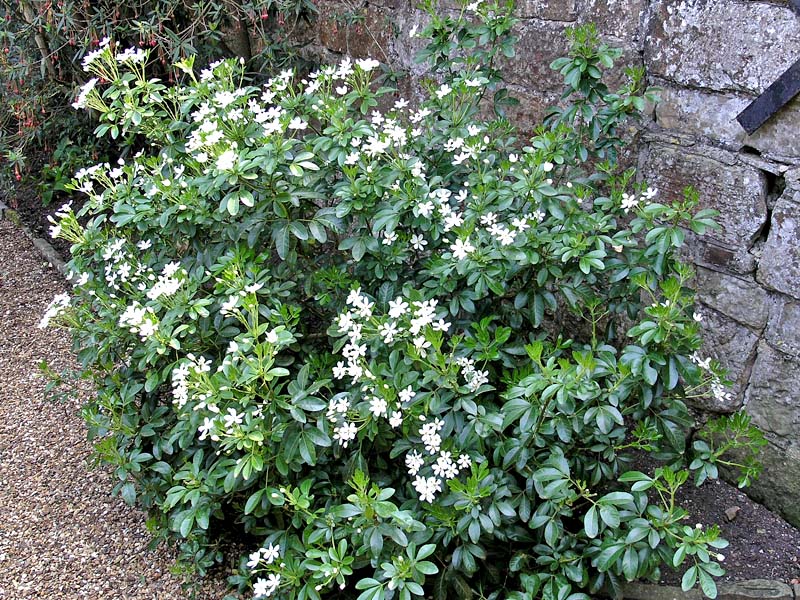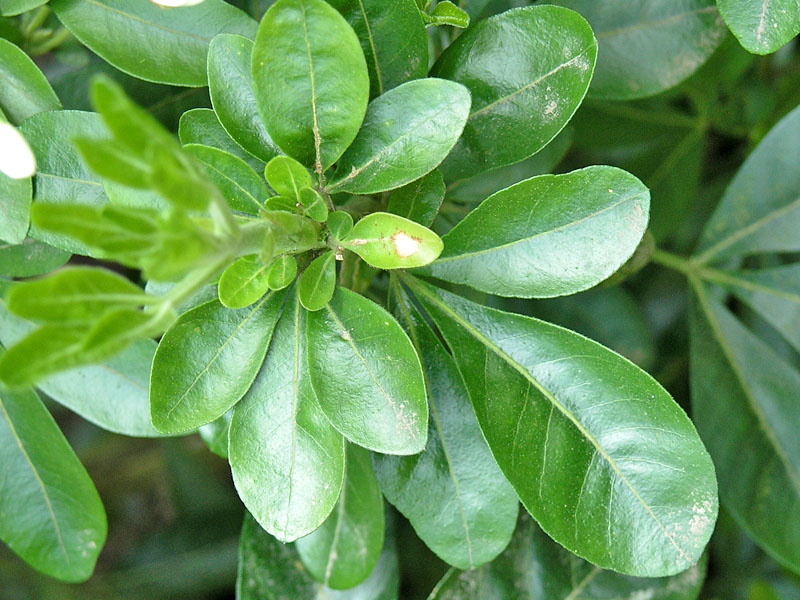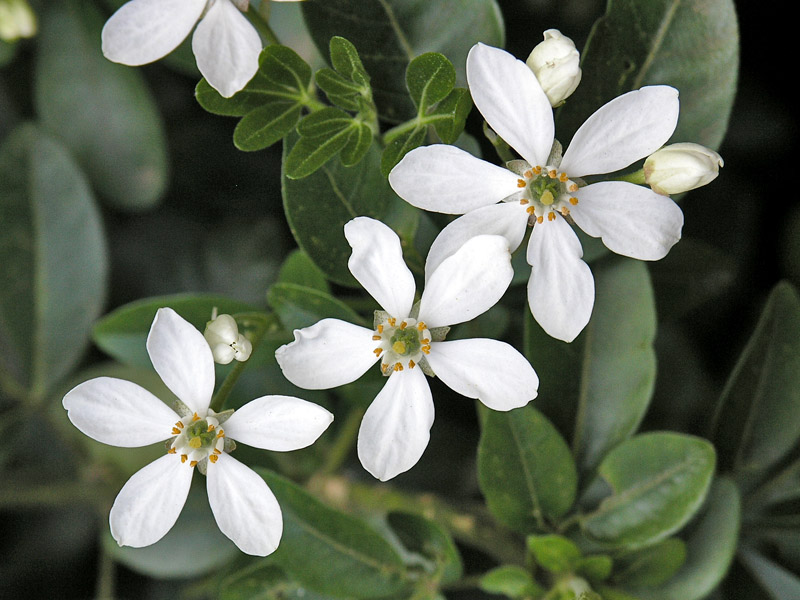
Tropicals, Woody > Choisya > Choisya ternata > Choisya ternata
Choisya ternata
Mexican Orange Blossom
Origin: Mexico.
Mike's
Opinion


"
Choisya ternate will grow in any type of well-drained soil. It can be planted in full sun,however it is best planted in a sheltered area. It is tolerant to drought and light frost, but it does the best in mild winter locations. It needs protection from the hot afternoon sun, and it does best if it is planted facing south, west or east. Stems have to be pruned immediately after flowering to encourage summer or autumn blooms. Propagation can be done by cutting stems in the summer. Flower and leaves both have an orange scent and it attracts butterflies and bees.
Michael Pascoe, NDP., ODH., CLT., MSc. (Plant Conservation)
"
| Family |
| Rutaceae |
| Genus |
| Choisya |
| Species |
| ternata |
| Category |
| Tropicals, Woody |
| Type |
| Shrub (evergreen) |
| Pronunciation |
| USDA Hardiness Zone |
| 8b - 9a |
| Canadian Hardiness Zone |
| 8a / may require cool season protection under glass. |
| RHS Hardiness Zone |
| H4 |
| Temperature (°C) |
| -10 to -5 |
| Temperature (°F) |
| 5 - 40 |
| Height |
| 1.2 - 2.4 m |
| Spread |
| 1.2 - 2.4 m |
Photographs
Description and Growing Information
Flowering Period
| General Description |
| Choisya ternata is a medium growing, medium-sized evergreen shrub. Its deep leathery green foliage can retain moisture well. The leaves have an orange scent when they are crushed. Its fragrant white flowers bloom in late spring to early summer. |
| Landscape |
| This compact shrub is best used in dense hedging. |
| Cultivation |
| It will grow in any type of soil, but it has to be well-drained. It can be planted in full sun area, but it is best to plant in a sheltered area. Regular watering is needed for optimal growth. |
| Shape |
| It has a dense rounded shape. |
| Growth |
| Medium |
| ID Characteristic |
| Its flowers have an orange scent which attract pollen-collecting insects such as butterflies and bees. |
| Pests |
| Die back occurs often in cold weather, but in most cases the plant will recover in spring. Snails can damage the bark and foliage. Sprinkling slug and snail pellets or multipurpose compost around the base of the plant will solve this problem. It may also attract glasshouse red spider mites, but Choisya ternata is generally a pest- and disease-free plant. |
| Habitat |
| It grows in chalky soils and is often found near the sea. |
| Bark/Stem Description |
| It has smooth and white fragrant bark. |
| Leaf Description |
| Choisya ternata has deep green and leathery leaves which are opposite, rounded, trifoliate, and palmately divided into 3-13 leaflets. Its leathery leaves can retain moisture well and have an orange scent when they are crushed. |
| Flower Description |
| Its white star-shaped flowers bloom from late spring to early summer. Like the leaves, the flowers have a faint orange scent. Some plants produce a second flowering in the summer or autumn. The flowers have a green stigma, with 4-7 white petals, 8-15 stamens, and are generally 3-8 cm across. |
| Fruit Description |
| It has 2-6 sectioned capsule fruits. |
| Colour Description |
| Its foliage stays green all year with white flowers in the spring, summer and occasionally into the autumn. |
| Texture Description |
| It has glossy, deep green leathery leaves. |
| Notable Specimens |
| The Royal Botanical Gardens, Burlington, Ontario, Canada. National Trust Trelissick Garden, Feock, near Truro, Cornwall, United Kingdom. |
| Propagation |
| Propagation by summer cuttings. |



